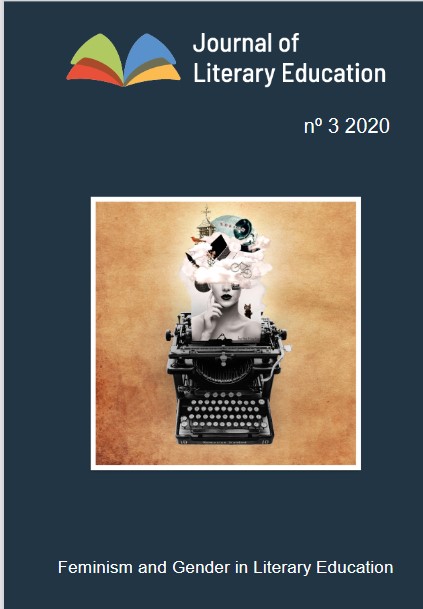Psychometric evaluation of recall and recognition tasks for the measurement of young spectators’ theatrical memory
DOI:
https://doi.org/10.7203/JLE.3.14835 Abstract
Abstract
The purpose of this research is the construction and psychometric evaluation of seven categories of recall and recognition tasks for the measurement of young spectators’ theatrical memory, based on the respective theatre codes of a specific performance for young spectators. The aim of those tasks is the evaluation of the young spectators’ mnemonic recordings on a level a) the actors’ representation of the characters on stage (acting), b) the visual frame of the performance, c) the audio code d) the lights, e) the dramatic text, f) the plot/action and g) the Shadow Theatre technique.
The recall and recognition tasks were constructed according to the Classical Test Theory of Question Analysis on a sample of 5th Grade Primary School pupils (i.e. ten-year-old pupils), who had seen this specific performance addressed to young spectators and were evaluated with the Factor Analysis method. For the evaluation of the quality of the questions, we took into consideration the difficulty coefficient of each question, the discriminant coefficient and the evaluation of the correlation level of expert judges. For the psychometric control of the tests we examined the validity of their conceptual construct via inquiry factor analysis and the internal validity coefficient.
The result of the above tasks was the creation of seven reliable and valid measurement tools, in which no gender effect is inferred.
 Downloads
Downloads
Downloads
Published
-
Abstract583
-
PDF297
Issue
Section
License
![]()
This work is licensed under a Creative Commons Attribution-NonCommercial-NoDerivatives 4.0 International License.
Authors who publish with this journal agree to the following terms: Authors retain copyright and grant the journal right of first publication with the work simultaneously licensed under a Creative Commons Attribution License that allows others to share the work with an acknowledgement of the work's authorship and initial publication in this journal. Authors are able to enter into separate, additional contractual arrangements for the non-exclusive distribution of the journal's published version of the work (e.g., post it to an institutional repository or publish it in a book), with an acknowledgement of its initial publication in this journal. Authors are permitted and encouraged to post their work online (e.g., in institutional repositories or on their website) prior to and during the submission process, as it can lead to productive exchanges, as well as earlier and greater citation of published work (See The Effect of Open Access).



